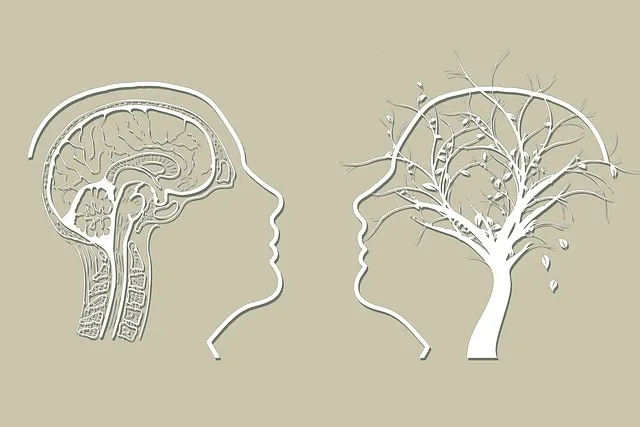Cultural competency in healthcare is crucial for meeting the diverse needs of America's minority populations. Kaiser Permanente Golden exemplifies this through its culturally sensitive mental health services, which boost patient satisfaction and wellness. They achieve this with community outreach, education initiatives like podcasts, training programs emphasizing empathy, and continuous bias-busting efforts. This inclusive approach to mental health care is a key driver of high-quality healthcare, as shown by Kaiser's successful tailored services for diverse communities.
“Discover how healthcare provider cultural competency training is transforming patient care. In an increasingly diverse society, understanding cultural competency is vital for effective treatment. This article explores why it matters and delves into successful models like Kaiser Permanente’s approach to mental health services. We examine strategies for continuous improvement within healthcare organizations, focusing on innovative practices that enhance cultural sensitivity. Learn how these initiatives, including Kaiser’s comprehensive mental health services, contribute to better patient outcomes, especially in addressing the unique needs of diverse communities.”
- Understanding Cultural Competency in Healthcare: Why It Matters and Its Impact on Patient Care
- Kaiser Permanente's Approach to Mental Health Services: A Comprehensive Overview
- Enhancing Cultural Competency: Strategies for Continuous Improvement in Healthcare Organizations
Understanding Cultural Competency in Healthcare: Why It Matters and Its Impact on Patient Care

Cultural competency in healthcare refers to the ability of providers to understand, appreciate, and effectively interact with patients from diverse cultural backgrounds. This includes recognizing and respecting different beliefs, values, and practices that may influence healthcare decisions. In today’s diverse society, where one-third of Americans identify as racial or ethnic minorities, it’s crucial for healthcare providers to be culturally competent.
When healthcare providers are culturally competent, they can improve patient care significantly. They become better equipped to address patients’ specific needs, improve communication, build trust, and enhance self-esteem. For example, a study found that culturally competent care led to higher satisfaction rates among minority patients and better outcomes in mental health services, such as those offered by Kaiser Permanente in Golden. Furthermore, cultural competency can facilitate the development of mental wellness coaching programs, boosting confidence and promoting overall mental wellness among diverse populations.
Kaiser Permanente's Approach to Mental Health Services: A Comprehensive Overview

Kaiser Permanente, a healthcare organization renowned for its comprehensive approach to patient care, places significant emphasis on addressing mental health concerns. Recognizing the vital role mental wellness plays in overall health, Kaiser Permanente does Kaiser Permanente offer mental health services with a golden rule: every patient deserves access to quality care tailored to their unique needs. This commitment is reflected in their multi-faceted strategy that incorporates various initiatives such as the Community Outreach Program Implementation, which bridges the gap between healthcare and underserved communities, ensuring mental health resources reach diverse populations.
In addition, Kaiser Permanente leverages innovative platforms like the Mental Wellness Podcast Series Production to educate and engage patients on mental health topics. These podcasts offer valuable insights into managing stress, anxiety, and other common mental health challenges. Furthermore, they emphasize empathy building strategies throughout their training programs, empowering healthcare providers to connect with patients on a deeper level and offer culturally sensitive care. Through these efforts, Kaiser Permanente strives to create an inclusive environment where mental health services are accessible, understandable, and welcoming to all.
Enhancing Cultural Competency: Strategies for Continuous Improvement in Healthcare Organizations

Cultural competency is a key aspect of providing quality healthcare, ensuring patient satisfaction, and fostering inclusive environments within organizations like Kaiser Permanente. The focus on enhancing cultural competency involves strategies that promote understanding and appreciation of diverse cultures, ethnicities, and backgrounds among healthcare providers. This includes ongoing training programs that challenge biases, improve communication skills, and educate staff about specific cultural practices and beliefs.
At Kaiser Permanente, for instance, the integration of mental health services is a significant part of their comprehensive approach to wellness. By recognizing the importance of cultural competency in this domain, the organization can better serve diverse communities and prevent burnout among providers who encounter unique patient needs. Continuous improvement strategies may include implementing community outreach programs that engage culturally diverse groups, encouraging provider participation in diversity workshops, and regularly reviewing and updating policies and practices to reflect a more inclusive healthcare model.
Healthcare provider cultural competency training is not just a best practice, but an imperative in today’s diverse society. As previously mentioned, organizations like Kaiser Permanente are setting the standard with comprehensive programs, such as their approach to mental health services in the Golden region. By integrating strategies for continuous improvement, healthcare organizations can better serve patients from various backgrounds and experiences. Enhancing cultural competency ensures that every individual receives respectful, culturally sensitive care, leading to improved outcomes and stronger communities.






